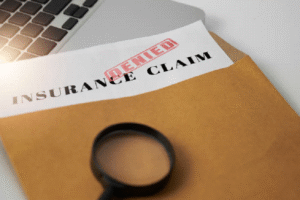Owning property—whether it’s a home, a rental, or a business space—is a huge milestone and investment. But with that ownership comes responsibility, including protecting your property from the unexpected. This is where property insurance steps in.
If you’re wondering what property insurance actually covers, why it’s so important, or how to find the right policy for your unique situation, you’re in the right place. Let’s dive into everything you need to know to protect what matters most.
What Exactly Is Property Insurance?
At its core, property insurance is a safety net for your physical property. It’s designed to protect you financially if your building or belongings suffer damage or are lost due to covered events. Think of it as a shield that helps you bounce back when life throws a curveball—like a fire, storm, or theft.
But here’s the thing: Property insurance isn’t one-size-fits-all. There are several types, each tailored to different property situations:
-
Homeowners Insurance: This is the most common type. It covers your primary residence, your belongings inside the home, and provides liability protection if someone gets hurt on your property.
-
Landlord Insurance: If you own a rental property, this policy protects your building and can cover lost rental income if your property becomes unlivable due to damage.
-
Commercial Property Insurance: Designed for business owners, it covers your commercial buildings, equipment, and inventory.
-
Renters Insurance: Not an owner? No worries. Renters insurance covers your personal belongings inside a rental property and often provides liability protection too.

Why Is Property Insurance So Important?
Imagine this: A severe storm causes major damage to your home, or a break-in results in stolen valuables. Without insurance, you’d be left footing a huge repair or replacement bill out of pocket. That’s the financial risk property insurance helps you avoid.
Here’s why having property insurance is essential:
-
Financial Protection: Repairing or rebuilding after disasters can be shockingly expensive. Insurance helps shoulder that burden.
-
Required by Lenders or Landlords: If you have a mortgage or rent out property, lenders and landlords often require proof of insurance to protect their investment.
-
Liability Coverage: If someone slips and falls on your property or your pet injures a visitor, liability coverage can help cover legal and medical costs.
-
Peace of Mind: Knowing you’re covered allows you to relax and focus on what truly matters.
What Risks Does Property Insurance Cover?
Most standard property insurance policies provide coverage for a range of common perils, including:
-
Fire and Smoke Damage: One of the most devastating but common risks.
-
Theft and Burglary: Protection against loss from break-ins.
-
Vandalism: Covers damage caused intentionally by others.
-
Water Damage: Typically from burst pipes or plumbing issues (note: flooding usually isn’t covered without separate insurance).
-
Wind and Hail Storms: Damage caused by severe weather events.
-
Lightning Strikes: Fire or damage resulting from lightning.
-
Falling Objects: Such as tree branches or debris.
-
Damage from Vehicles or Aircraft: Rare but covered if these unfortunate events occur.
Important: Every insurance policy is a bit different. Be sure to read the fine print and ask your agent exactly what’s covered.

What Isn’t Covered by Property Insurance?
While property insurance is broad, it has some limitations. Common exclusions include:
-
Flood Damage: Standard policies usually don’t cover floods. You’ll need separate flood insurance, especially if you live in a flood-prone area.
-
Earthquake Damage: Like floods, earthquakes require additional coverage in most cases.
-
Wear and Tear: Normal aging, deterioration, and maintenance issues aren’t covered.
-
Negligence or Poor Maintenance: Damage resulting from neglect won’t be covered.
-
Pest Infestations: Termites, rodents, and other pests usually aren’t covered.
To fill in these gaps, you can purchase additional riders or endorsements on your policy.
How to Pick the Right Property Insurance Policy for You
Choosing the right property insurance doesn’t have to be overwhelming. Here are some straightforward steps to guide you:
-
Know Your Property’s Value: Understand the full cost to rebuild your home or repair your property after a loss. This ensures you get sufficient coverage.
-
Understand Your Needs: Are you a homeowner, landlord, renter, or business owner? Your type of property will dictate the best insurance product.
-
Make an Inventory: For your belongings or business assets, create a detailed list with estimated values to ensure your policy covers what matters most.
-
Shop Around: Get quotes from multiple insurers to compare coverage options and prices.
-
Consider Location-Based Risks: Does your property face specific risks like flooding, wildfires, or earthquakes? If yes, ask about specialized coverage.
-
Ask About Discounts: Bundling your property insurance with auto or other policies, installing security or sprinkler systems, and maintaining a claim-free record can often earn you discounts.
-
Understand Deductibles: A higher deductible can lower your premium but make sure it’s an amount you can comfortably pay if you file a claim.

Final Thoughts: Protect What Matters Most
Property insurance isn’t just a financial product—it’s a key part of protecting your lifestyle, your investment, and your future. Whether it’s your family home, a rental you rely on for income, or a commercial building supporting your business, the right insurance policy can give you peace of mind and a safety net against life’s surprises.
No one wants to think about worst-case scenarios, but being prepared is smart. With the right property insurance, you can face the unexpected with confidence.





